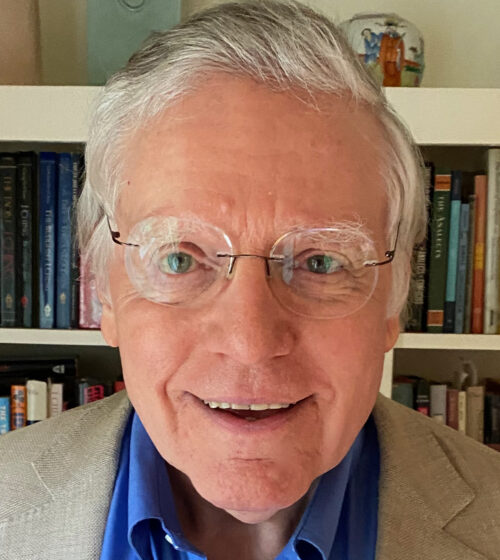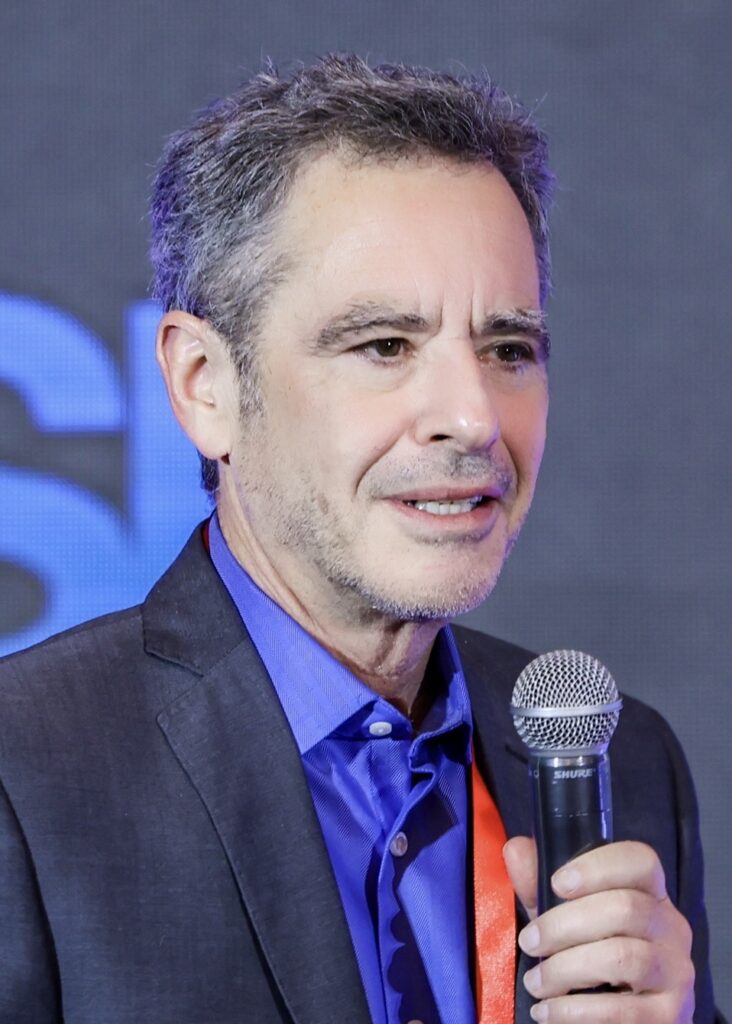This list will be updated as we receive donations.

- This event has passed.
The Challenge of Extraversion: Staying Engaged with the Other
– Presented by John Beebe, PhD [SEMINAR]

**This event is zoom only**
NARRATIVE:
The problem of the extravert in therapy is that the patient’s desire to stay engaged with significant Others places a demand for interaction upon the therapist who may be trying to get the patient to step back and reflect. For the therapist, the paradox that emerges with patients who are skilled at interaction becomes, how you help the extraverted well-adapted get past their own successes in that regard. This seminar will identify four types of extraverted consciousness that each of us has to some degree. It will discuss how patients preferring an extraverted consciousness may employ it with the expectation that the therapist, since in a helping profession, will want to connect also in an extraverted way. The difference between a normal extraverted transference and narcissistic demand will be explored, and we will discover how even therapist who are primarily introverted can use extraverted consciousness to support clients in engaging with internal objects.
2. SOURCE MATERIAL
Beebe, J. (2012). Psychological Types in Freud and Jung. Jung Journal: Culture & Psyche 6(3), 58 – 71.
Beebe, J. (2017). Energies and Patterns in Psychological Type: The Reservoir of Consciousness. Routledge.
Beebe, J. (2017). Foreword to C. G. Jung, Psychological Types. Routledge Classics, xvi-xx.
Beebe, J. (2015). Demonic Consciousness as a Dynamic of Evil: Jungian Approaches to Understanding Evil. In Humanizing Evil: Psychoanalytic, Philosophical and Clinical Perspectives. R. Naso & J. Mills, Eds. Routledge, 69-88.
Jung, C. G. (1921/1971). “The Extraverted Type,” Chapter 10/2, pp. 333-372 of Psychological Types, In Collected Works, volume 6. Princeton University Press.
Shapiro, K. & Alexander, I. (1975). The experience of introversion: An integration of phenomenological, empirical, and Jungian approaches. Duke University Press.
Von Franz, M.L. & Hillman, J. (1971/1998). Lectures on Jung’s Typology. Spring Publications.
3. LEARNING OBJECTIVES
Upon completing this seminar, participants should be able to:
- Explain how introverted and extraverted forms of awareness complement and serve as checks and balances on each other.
- List the eight types of consciousness that Jung distinguished in Psychological Types.
- Describe the qualitative difference between seeking to identify the meaning of an internal object by comparing it to a pre-existing archetype and engaging, experiencing, and enjoying the presence of that object for its own sake.
- Identify two forms of extraverted consciousness that Jung labeled “irrational” and explain how the label “irrational” in this context is not pejorative.
- Discuss the difference between healthy extraversion and pathological narcissism.
- List keywords that can be used to identify each of the four extraverted types of consciousness and their uses.
4. SEMINAR COURSE OUTLINE – 6 hrs.
8:30 am
Registration
9:00 – 9:10 am
Introduction of presenter
9:10 – 10:30 am
Contrast the attitudes of introversion and extraversion.
Define the four functions of consciousness that can be used in either an extraverted or an introverted way
Define eight possible spines of consciousness linking extraversion and introversion.
Discriminate between rational and irrational consciousness.
Explore how extraverted consciousness can engage with the unconscious.
Differentiate between extraversion and relatedness.
Discriminate between introversion and withdrawal from social interaction.
10:30 – 10:40 am
Break
10:40 – 11:10 a.m.
First film excerpt and analysis
11:10 -12:00
Second film excerpt and analysis
12:00 – 1:00 pm
Lunch
1:00 – 1:15 pm
Q & A
1:15 – 1:55 pm
Third film excerpt and analysis
1:55 – 2:30 pm
Fourth film excerpt and analysis
2:30 – 2:40 pm
Break
2:40 – 3:45 pm
Consider how the use of an extraverted type of consciousness varies by role.
Describe challenges facing four types of extraverted clients.
Strategize about how to mirror and support such clients.
Explore the intersection of cultural and psychological diversity in creating extraverted patterns of behavior.
3:45 – 4:00 pm
Q&A
5. CRITERION 1.1 to 1.3
This course meets the Criterion 1.1.
6. CONTENT CURRICULUM
1. Describe how your program content will build upon the foundation of a completed doctoral program in psychology.
The subject of personality differences present from birth and how they affect cognitive learning and affect regulation remains a research topic that is in its infancy within most graduate training programs in psychology. Howard Gardner’s work on multiple intelligences is an example of one approach to the subject. This presentation addresses that area of potentially fruitful inquiry.
2. Describe how your content is specifically relevant to psychological practice, education, or science.
Every client has the capacity and need to develop their extraverted consciousness—to be engaged and able to identify and merge experientially with others responding to life experiences they do not want to face alone. Extraverted clients tend to engage in this way almost immediately with their therapists. Introverted clients also describe the same capacity in themselves when they are in the role of nurturing and mentoring other people. Both kinds of clients need the therapist to be able to understand and support the client’s extraverted processes and realize that they are not necessarily self-falsifications.
3. Describe your target audience and the instructional level of your content (introductory, intermediate, or advanced).
The target audience is psychologists who have had some clinical experience but are not well-trained in the Jungian theory of psychological type as a depth psychology model.
4. Describe the accuracy, utility, and the empirical basis of the materials that you will present. What are the limitations of the content being taught and their most common risks?
To accurately diagnose the innately natural psychological type of a client can be difficult, but fortunately it is not necessary to do this right away to enable type theory to benefit a client. As we work with clients in psychotherapy, we merely need to be attentive to what kinds of consciousness the client expresses and what kinds of s/he seems to be much less aware of. Over time, a pattern of consciousness will emerge, and the therapist can begin to see the client’s typological strengths and notice which types of consciousness are used defensively or under stress. In working with patients, it is a mistake to assume too quickly that you know their psychological type, even in cases where the client reports the result of a type of instrument, such as the Myers-Briggs Indicator. These indicators can point the way toward a type of diagnosis, but they certainly do not always give accurate or consistent results.
5. Describe how your content reflects the appreciation of a diverse populations and how you intend to acknowledge and respect of the richness of cultural, individual and role differences.
The theory of psychological type is one that recognizes and normalizes psychological diversity. It asserts that different people pay attention using different types of awareness and that all eight of these kinds of consciousness are equally valid and healthy, though they are not all equally useful in some situation. Like individuals, cultures and subcultures tend to emphasize and value certain types of consciousness more than others. Thus, there can be conflicts and misunderstandings. As type theory has developed over the past century, it has also become clearer that individuals gravitate to different types of consciousness depending on the role they are playing in each moment. Thus, a person will consistently use one type of consciousness when they need to heroically rise to a challenge and master a situation but will turn to other types of consciousness when they are being parental, or playful, or are defending themselves under stress.
Bio
John Beebe is the creator of the eight-function, eight-archetype model of psychological types. A Jungian analyst and past president of the C.G Jung Institute of San Francisco, he is the author of Energies and Patterns in Psychological Type: The Reservoir of Consciousness and co-editor, with Ernst Falzeder, of The Question of Psychological Types: The Correspondence of C.G Jung and Hans Schmid-Guisan. John has spearheaded a Jungian typological approach to the analysis of film and has written the preface to the recent Routledge Classics edition of Jung’s 1921 book, Psychological Types.
COST:
CIP Members:
$100 early registration 10 business days prior to seminar; $120 after
Non-Members:
$130 early registration up to 10 business days prior to seminar, $150 after
CEs: 6 CEs for LMFTs, LCSWs, and Psychologists. Participants must attend the full live session and complete the evaluation at the end to receive a CE completion certificate.
Community Institute for Psychotherapy is approved by the American Psychological Association to sponsor continuing education for psychologists. Community Institute for Psychotherapy maintains responsibility for this program and its content.
Cancellation must be received in writing by email: Full refund if canceled 48 hours prior to the event; $25 cancellation fee if canceled with less than 48 hours notice.
Accommodations will be made wherever possible to those with disabilities. Please let us know of any disabilities upon registration, to ensure proper accommodations are put in place prior to workshop/training.
Grievance Procedure: CIP will respond to complaints in a reasonable, ethical and timely manner, when submitted by program attendees in writing to the Chair of CIP’s Professional Development Committee.
Anti-Discrimination Policy: CIP shall not discriminate against any individual or group with respect to any service, program or activity based on gender, race, creed, national origin, sexual orientation, religion, age or other prohibited basis. CIP does not require attendees to adhere to any particular religion or creed in order to participate in training. CIP will not promote or advocate for a single modality of treatment that is discriminatory or likely to harm clients based on current accepted standards or practice.
*There is no conflict of interest or commercial support related to this CE program.











